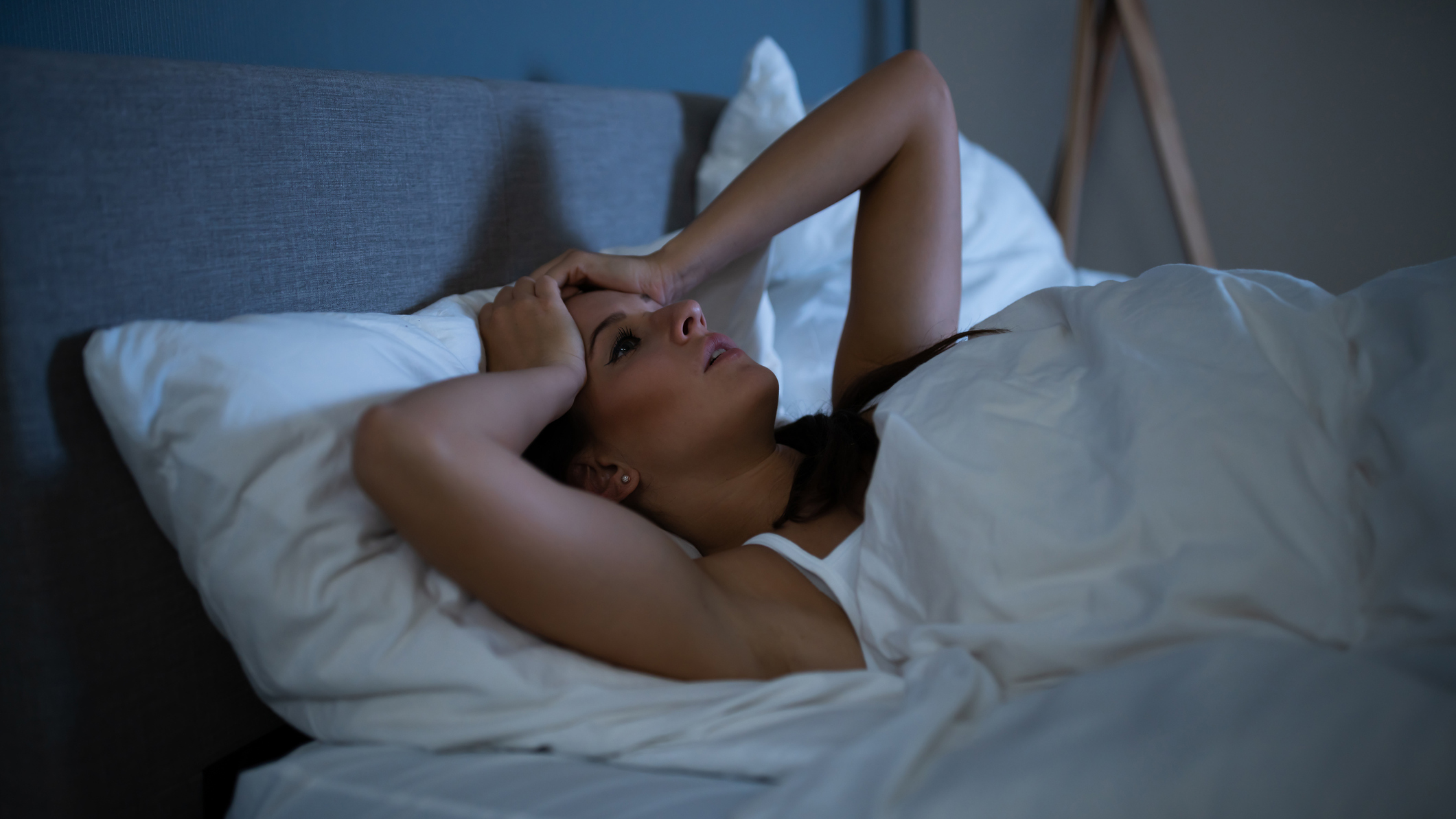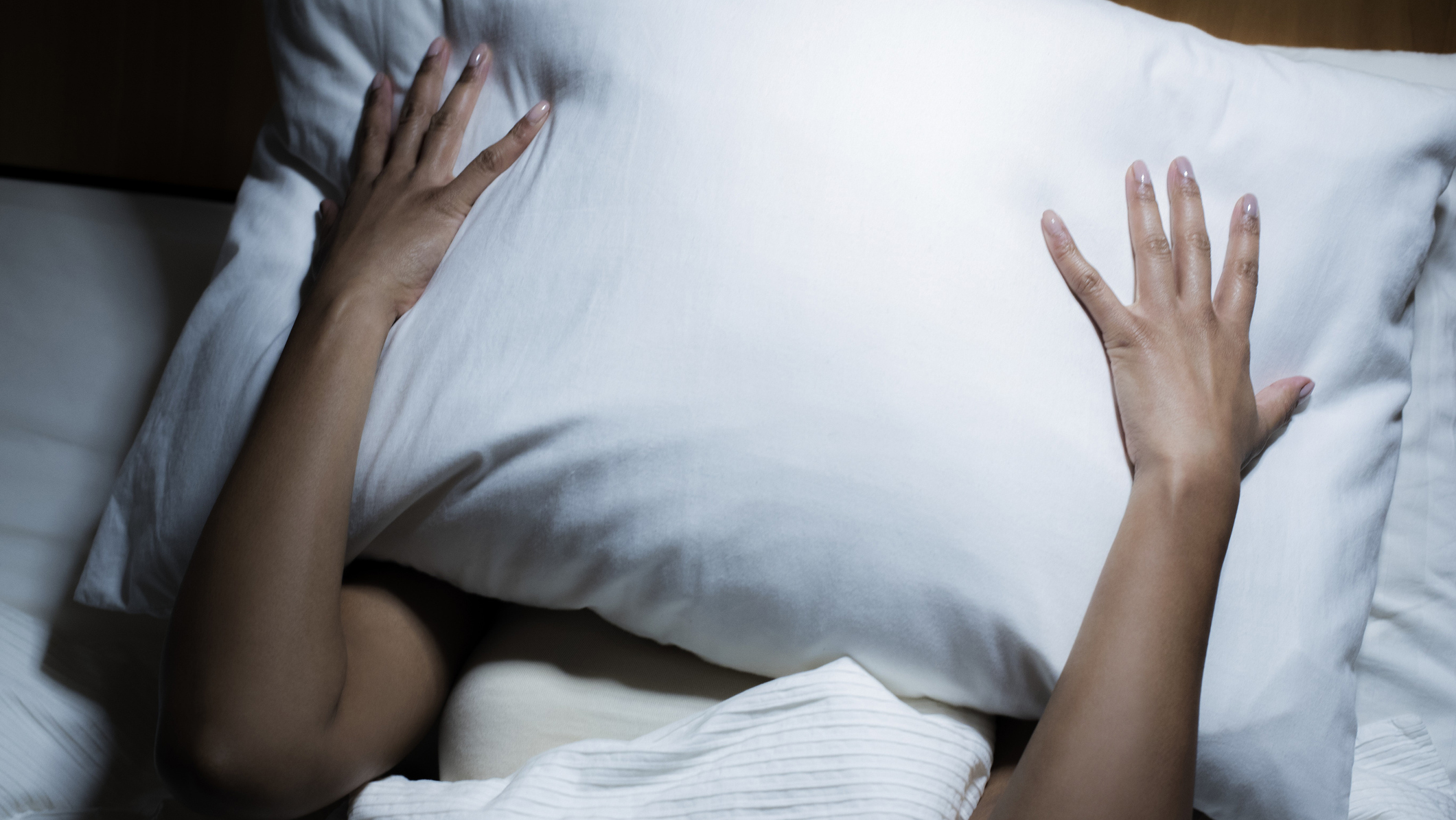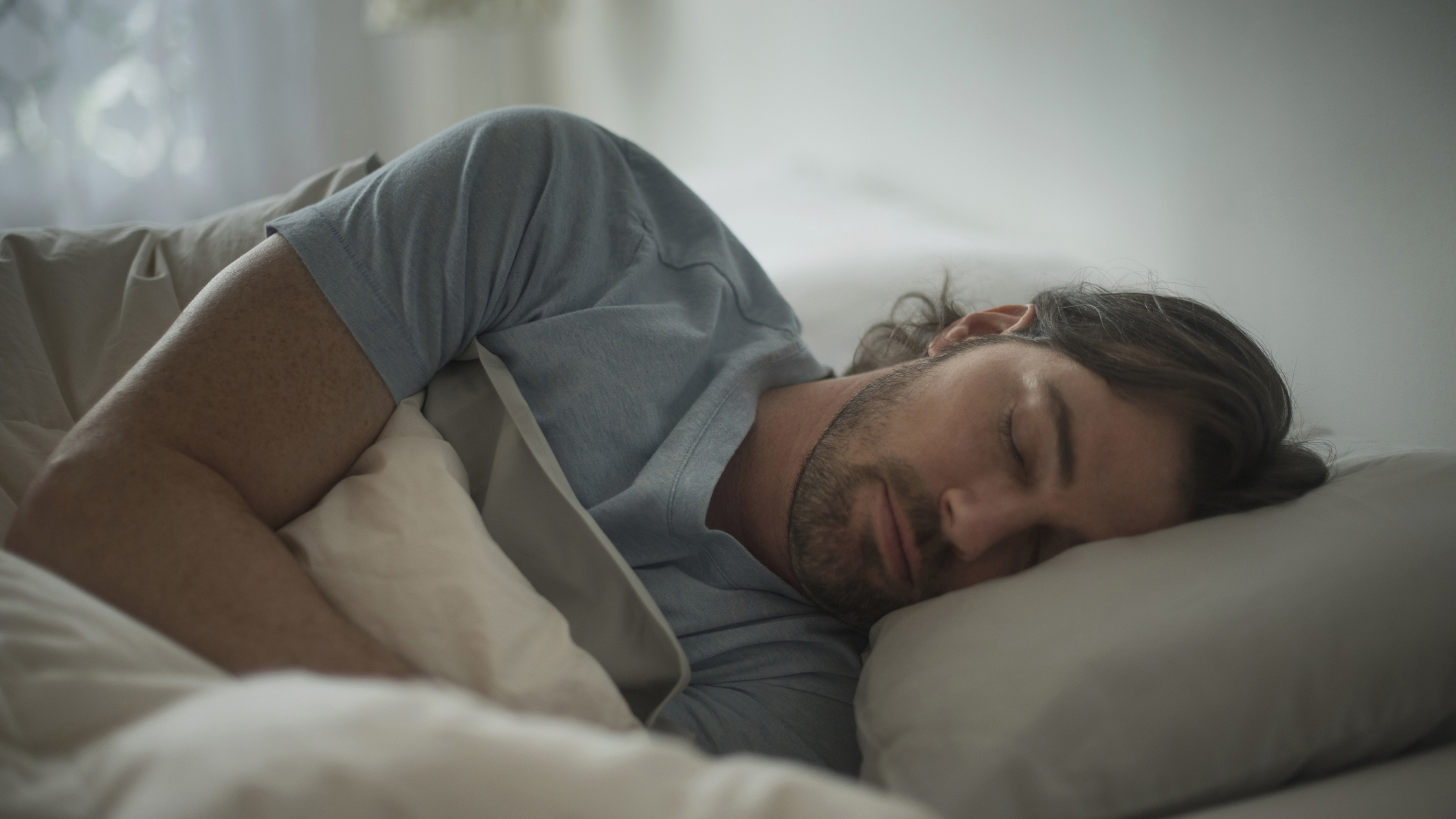Dream expert reveals four of the most common nightmares and what they mean
Best-selling sleep and dreams author Theresa Cheung reveals the four most common nightmares and what they mean

Is there anything more terrifying than dreaming that all of your teeth have fallen out? According to dream expert and Sunday Times best-selling author Theresa Cheung, losing your teeth is one of the most common nightmares people have.
However, Cheung says,“Every single dream is unique and unusual. There is no such thing as a ‘usual’ nightmare, even ones with commonly reported nightmare themes.”
While nightmares are common, there are four in particular that seem to crop up again and again. Cheung recently teamed up with bed retailer Happy Beds to reveal these common nightmares and why so many of us seem to have them. Here’s what she has to say…
- Olympic athlete Greg Rutherford shares his bedtime routine for better sleep
- How to use the 4 7 8 sleep method to fall asleep fast
- Are you having night terrors or nightmares? Experts explain the difference
- “They are coming for your dreams,” scientists warn as advertisers infiltrate our subconscious
4 most common nightmares and what they mean
“Your dreaming mind is using shocking images because it knows you are more likely to recall them and ponder their meaning than everyday dreams.” According to Cheung, these are four of the most common nightmares and what they mean:
1. Murder
The most terrifying of them all, but not one to be taken literally. Cheung says: “A dream that involves a murder of some description can mean an unexpected change is being forced onto you.” Speaking to a therapist or doctor about any big changes you are going through may help here, especially if the changes feel too big or challenging to deal with alone.

2. Apocalypse
Ever dreamt that you are in the middle of a disaster scene and feel utterly panicked? Then this one is for you. “If you have a dream that involves the apocalypse it can be a sign that your subconscious feels that everything is shifting in your life and it’s time for a fresh start.”
3. Teeth falling out
This is a classic nightmare that most people have had at least once. “There could be more than one reason that you’re having nightmares about your teeth falling out. It could mean that you’re concerned about ageing or your appearance, or even that you have unexpressed anger inside.”
Get instant access to breaking news, the hottest reviews, great deals and helpful tips.
4. Drowning
“Dreams about drowning are very common and can be disturbing, however, they’re usually a sign that you’re feeling emotionally overwhelmed.”
One research theory about why we dream is that it helps us to store important memories about what we have learned in the day, and to sort through all our complex feelings and thoughts. For example, if you learn something new one day, you’ll be able to recall it better the next day after a good night’s sleep than if you didn’t sleep at all.
Remember, says Cheung, that, “These dreams mean that there are feelings or situations in your current waking life which you are having difficulty fully processing. You should not fear nightmares. Think of nightmares as a form of tough love.”
How to reduce your chance of having nightmares
Nightmares can be terrifying, especially if you have a recurring one. You can end up fearing going to bed, which in turn has a negative effect on your sleep quality. It can be difficult to know how to stop nightmares, but Katherine Hall, a psychologist in sleep from Somnus Therapy, shares five tips and techniques to help you avoid having nightmares and enjoy more relaxing sleep:
Consistency is key
At Tom’s Guide we talk a lot about why bedtime routines are important for helping you to sleep well, and that includes waking up at the same time each day. Hall agrees: “Consistency is likely to result in more restful and stable sleep, preventing the likelihood of a nightmare-inducing REM rebound from sleep deprivation.”
Before bed, engage in calming routines to help you prepare for sleep, such as meditation or a warm bath. And either turn off the TV or opt for your favorite comfort show — no struggling to sleep after a scary movie marathon.
Daily relaxation practice
Do you head to bed feeling tense, stressed and worried? Then you are more likely to have disturbed sleep. “Relaxation techniques such as progressive muscle relaxation (PMR) can be incredibly useful in helping you to get to sleep and reducing the stress around not being able to sleep,” Hall says.
PMR is an effective form of mindfulness recommended by many sleep experts. To use it, you work through each of your muscle groups, focusing on tensing then relaxing them in turn, to achieve a sense of total, head-to-toe body and mind relaxation. The above video shows you how to do it.
We'd also recommend investing in the best mattress for your body to enjoy comfier sleep. No budget but your bed has seen better days? A mattress topper can help. With the Presidents' Day mattress sales coming up, now is a good time to buy.
Avoid alcohol
Any sleep expert will tell you that alcohol is bad news for sleep - it disrupts your overall slumber, leaving you waking up often throughout the night, so you feel more tired the next day.
“Alcohol is an REM sleep blocker and causes an overall reduction in REM sleep – also known as dream sleep." Hall explains. "When the alcohol starts to wear off it’s not uncommon to experience really vivid dreams or nightmares.”

Expressive writing
Journalling is an excellent way to reduce worries and work through stresses ahead of hitting the bedroom, so they can also help you reduce your chances of having a nightmare too.
“Expressive writing has been shown to enable the writer to better regulate their emotions, as well as helping the writer break free from the endless mental cycling of rumination,” explains Hall. “Acknowledging emotions and writing them down reduces the need for your mind to constantly fight and be in battle with any negative and stressful thoughts.”
Seek treatment
“When nightmares become a frequent occurrence and [are] recurring, speaking with a professional may be the best option to help discover and treat the underlying issue.”
Read more:

Claire is a Certified Sleep Science Coach and the Managing Editor of Sleep at Tom's Guide. She curates our mattress guides and oversees our rigorous mattress testing procedures. Claire has over 16 years' product review experience and is connected to a wealth of globally renowned sleep experts including mattress designers and buyers, neuroscientists, and doctors of sleep medicine. As the Managing Editor of our Sleep and Mattress Team, Claire is responsible for all mattress and sleep content published on Tom’s Guide and is our expert on Saatva, DreamCloud, and Nectar mattresses. Claire is also certified to advise people on how to choose a mattress that suits their needs and budget, as well as helping them to create a nighttime routine and bedroom environment that helps them sleep better.
 Club Benefits
Club Benefits





